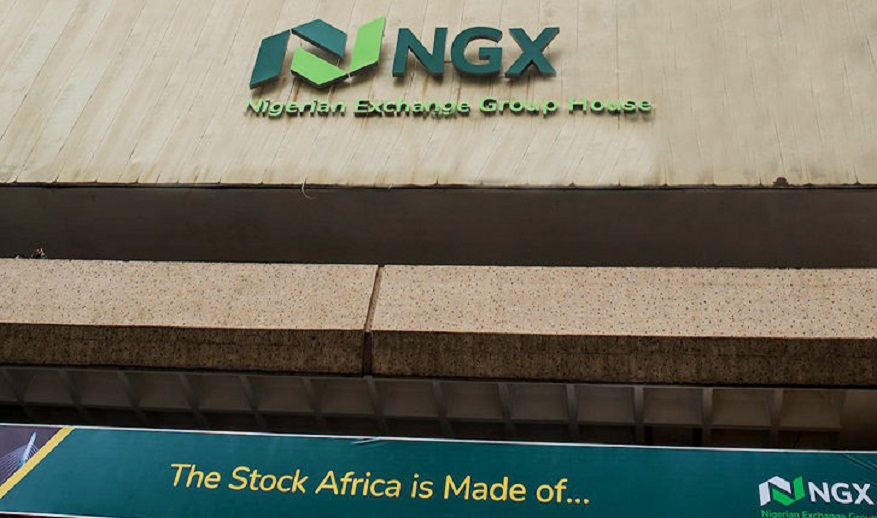Economy
Manufacturers Laud FG’s Accelerated Stabilisation Plan

By Adedapo Adesanya
The Manufacturers Association of Nigeria (MAN) has lauded the federal government’s Accelerated Stabilisation and Advancement Plan (ASAP).
MAN Director General, Mr Segun Ajayi-Kadir, on Saturday in Lagos via a statement said the policy epitomises the collaboration between the government and relevant private sector stakeholders.
The FG in July unveiled the stabilisation plan to inject N2 trillion into the economy in the next six months and increase electricity generation and crude oil production.
The plan in partnership with major private sector stakeholders is to provide a more enabling environment for businesses, restore the country to the path of growth and improve ordinary Nigerians’ living standards.
Mr Ajayi-Kadir lauded President Bola Tinubu for inaugurating the Presidential Economic Coordinating Council to superintend its implementation.
However, he noted that an initiative in itself does not deliver unless there is a diligent, unrelenting and focused implementation to achieve the desired objectives.
Mr Ajayi-Kadir said the relevant structure needs to be activated and charged to put speed to action, with consequences for non-delivery within set timelines.
He stated that with the downturn in the economy, the stabilization plan was timeous, and effective implementation would be a good starting point to restore confidence in governance and the economy.
“It will also engender trust in the government’s capacity to attract new investors and retain the existing ones, both local and international.
“Government should be intentional about attracting investments that add real value to the economy, particularly the ones that directly impact and boost productivity
“Mr President should give specific directives to the relevant government Ministries, Departments and Agencies (MDAs) to attract investment into the manufacturing sector.
“The “flight by night” foreign investors will not achieve the level of progress we seek, need and deserve,” he said.
Mr Ajayi-Kadir also stated that the recent commitment of Coca-Cola to invest one billion dollars in the Nigerian economy was a promising sign and an expression of confidence in the Tinubu administration’s policies.
He said the full and timely implementation of the stabilisation plan was key to unlocking its full potential.
He added that sustained growth and investor confidence was dependent on the complete rollout of the plan.
“The early results of this plan are encouraging, but its full execution is crucial to ensure lasting economic growth.
“As advocates for Nigeria’s manufacturing sector, we urge the government to maintain momentum and fully implement the plan.
“The Coca-Cola System’s $1 billion commitment must have been predicated on the belief that specific aspects of the ASAP would be fully implemented and sustained.
“While we acknowledge the government’s commitment to the plan, further decisive and well-coordinated actions are needed to ensure this kind of investment and many more to be attracted translates into broader economic gains under President Tinubu’s government,” he said.
Economy
NGX Records 2026 Highest Daily Gain of 1.65% as YtD Return Hits 13.62%

By Dipo Olowookere
The Nigerian bourse showed no signs of slowing its bull run as it further appreciated by 1.65 per cent on Tuesday, its highest daily gain in 2026.
This was influenced by continued interest in shares in the energy, consumer goods and industrial goods sectors.
Data from the Nigerian Exchange (NGX) Limited revealed that the energy space increased by 2.97 per cent, the industrial goods counter appreciated by 2.93 per cent, the banking index expanded by 1.83 per cent, the consumer goods sector improved by 0.16 per cent, and the insurance segment rose by 0.01 per cent.
As a result, the All-Share Index (ASI) added 2,863.20 points to close at 176,809.42 points compared with the previous day’s 173,946.22 points, and the market capitalisation soared by N1.838 trillion to N113.497 trillion from N111.659 trillion.
The growth recorded by Customs Street yesterday was mainly due to buying pressure on some bellwether stocks like MTN, GTCO, BUA Cement, Lafarge Africa and others.
Sixty-six equities ended on the gainers’ chart during the session, while 22 equities finished on the losers’ chart, indicating a positive market breadth index and bullish investor sentiment.
The quartet of Omatek, Deap Capital, eTranzact, and John Holt chalked up 10.00 per cent each to sell for N3.19, N8.25, N20.35, and N8.80 apiece, while Vitafoam Nigeria gained 9.98 per cent to settle at N105.80.
Conversely, Abbey Mortgage Bank lost 9.82 per cent to trade at N12.40, SAHCO declined by 9.06 per cent to N150.00, Guinea Insurance slipped by 6.67 per cent to N1.54, Consolidated Hallmark shrank by 6.64 per cent to N4.50, and Livestock Feeds depleted by 6.34 per cent to N6.65.
A total of 1.3 billion stocks valued at N50.4 billion exchanged hands in 58,965 deals on Tuesday compared with the 775.2 million stocks worth N27.9 billion transacted in 65,960 deals on Monday, implying a fall in the number of deals by 10.61 per cent, and a growth in the trading volume and value by 67.70 per cent and 80.65 per cent, respectively.
Deap Capital was the most active stock for the day with a turnover of 283.1 million units valued at N2.0 billion, Access Holdings traded 135.5 million units worth N3.2 billion, Veritas Kapital transacted 67.3 million units for N149.7 million, Tantalizers exchanged 54.7 million units valued at N289.8 million, and Zenith Bank sold 52.1 million units worth N4.0 billion.
Economy
Oil Slips as Markets Await US–Iran Signals, Ukraine Peace Moves

By Adedapo Adesanya
Oil went down less than 1 per cent on Tuesday as the markets waited for direction from news on diplomatic relations between the US and Iran, while the traders monitored efforts to end Russia’s war in Ukraine.
Brent futures fell 24 cents or 0.3 per cent to settle at $68.80 a barrel, while US West Texas Intermediate (WTI) crude declined by 40 cents or 0.6 per cent to $63.96 per barrel.
US and Iranian diplomats held talks through mediators in Oman last week in an effort to revive diplomacy, after President Donald Trump positioned a naval fleet in the region, raising fears of new military action.
According to Iran’s foreign ministry spokesperson on Tuesday, nuclear talks with the US allowed Iran to gauge the seriousness of the American government and showed enough consensus to continue on the diplomatic track.
Market analysts noted that unless there are concrete signs of supply disruptions, prices will likely start going lower, especially since there was no blockade to the Strait of Hormuz. About a fifth of the oil consumed globally passes through the Strait of Hormuz between Oman and Iran, making any escalation in the area a major risk to global oil supplies.
Iran and fellow Organisation of the Petroleum Exporting Countries (OPEC) members Saudi Arabia, United Arab Emirates, Kuwait and Iraq export most of their crude via the strait, mainly to Asia.
The European Union (EU) is moving to propose a list of concessions that Europe should demand from Russia as part of a settlement to end the war in Ukraine. The move is part of efforts to squeeze Russian revenue. Russia was the world’s third-biggest crude producer behind the U.S. and Saudi Arabia in 2025.
Reuters reported that already, India, through its state oil company, Indian Oil Corporation (IOC), bought six million barrels of crude from West Africa and the Middle East, traders said, as India steered clear of Russian oil.
The American Petroleum Institute (API) estimated that crude oil inventories in the US increased by a whopping 13.4 million barrels in the week ending February 6. Official data from the Energy Information Administration (EIA) will be released later on Wednesday.
Economy
Nigeria Revenue Service Targets N40.7trn in 2026

By Adedapo Adesanya
The Nigeria Revenue Service (NRS), formerly known as the Federal Inland Revenue Service (FIRS), has fixed a collection target of N40.7 trillion for the 2026 fiscal year.
This is hinged on its last year’s record revenue collection of N28.3 trillion, which the Executive Director overseeing Government and Large Taxpayers, Mrs Amina Kurawa, said represents an increase of more than 30 per cent when compared to the N25.5 trillion recorded in 2024.
Mrs Kurawa, while speaking at a staff retreat organised by the service, explained that a bulk of the revenue collected during the period was driven by the non-oil sector.
According to her, the ambitious target for this year will be supported by stronger non-oil revenue contributions and improved collections from royalty-based income streams.
Meanwhile, the Chairman of the agency, Mr Zacch Adedeji, urged staff to raise their performance in the coming year, emphasising that transparency and accountability remain central to the agency’s operations.
The organisation also projected growth in non-oil tax receipts in 2026, with Company Income Tax (CIT), Value Added Tax (VAT), and the Development Levy expected to play leading roles in boosting government revenue.
On June 26, 2025, President Bola Tinubu signed into law a historic package of tax reform legislation, marking the most comprehensive overhaul of Nigeria’s fiscal architecture in decades. The four Acts: The Nigeria Tax Act, Nigeria Revenue Service (Establishment) Act, Nigeria Tax Administration Act, and the Joint Revenue Board (Establishment) Act, seek to streamline revenue administration, enhance compliance, strengthen intergovernmental coordination, and reposition the tax system to support inclusive growth.
By consolidating over a dozen outdated statutes and introducing modern mechanisms for enforcement, digitalisation, and dispute resolution, these reforms are expected to significantly reshape Nigeria’s fiscal future, which will translate to more Nigerians entering the tax base.
For instance, the Nigeria Tax Act, 2025, repeals and consolidates over a dozen federal tax laws into a single unified statute. It replaces legacy laws such as the Companies Income Tax Act (CITA), Personal Income Tax Act (PITA), Capital Gains Tax Act (CGTA), Value Added Tax Act, and the Stamp Duties Act, among others. This consolidation aims to reduce fragmentation, promote consistency, and modernise Nigeria’s tax framework for a digital and globally integrated economy.
Business Post reports that the Federal Inland Revenue Service (Establishment) Act, 2007, was repealed and formally established the NRS as the central authority for the assessment, collection, accounting, and enforcement of federally collectable taxes and other designated revenues.
-

 Feature/OPED6 years ago
Feature/OPED6 years agoDavos was Different this year
-
Travel/Tourism10 years ago
Lagos Seals Western Lodge Hotel In Ikorodu
-

 Showbiz3 years ago
Showbiz3 years agoEstranged Lover Releases Videos of Empress Njamah Bathing
-

 Banking8 years ago
Banking8 years agoSort Codes of GTBank Branches in Nigeria
-

 Economy3 years ago
Economy3 years agoSubsidy Removal: CNG at N130 Per Litre Cheaper Than Petrol—IPMAN
-

 Banking3 years ago
Banking3 years agoSort Codes of UBA Branches in Nigeria
-

 Banking3 years ago
Banking3 years agoFirst Bank Announces Planned Downtime
-

 Sports3 years ago
Sports3 years agoHighest Paid Nigerian Footballer – How Much Do Nigerian Footballers Earn











